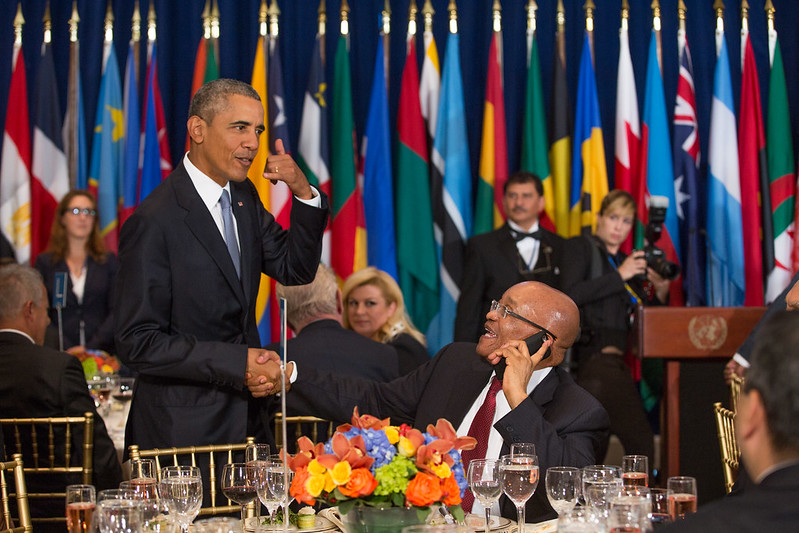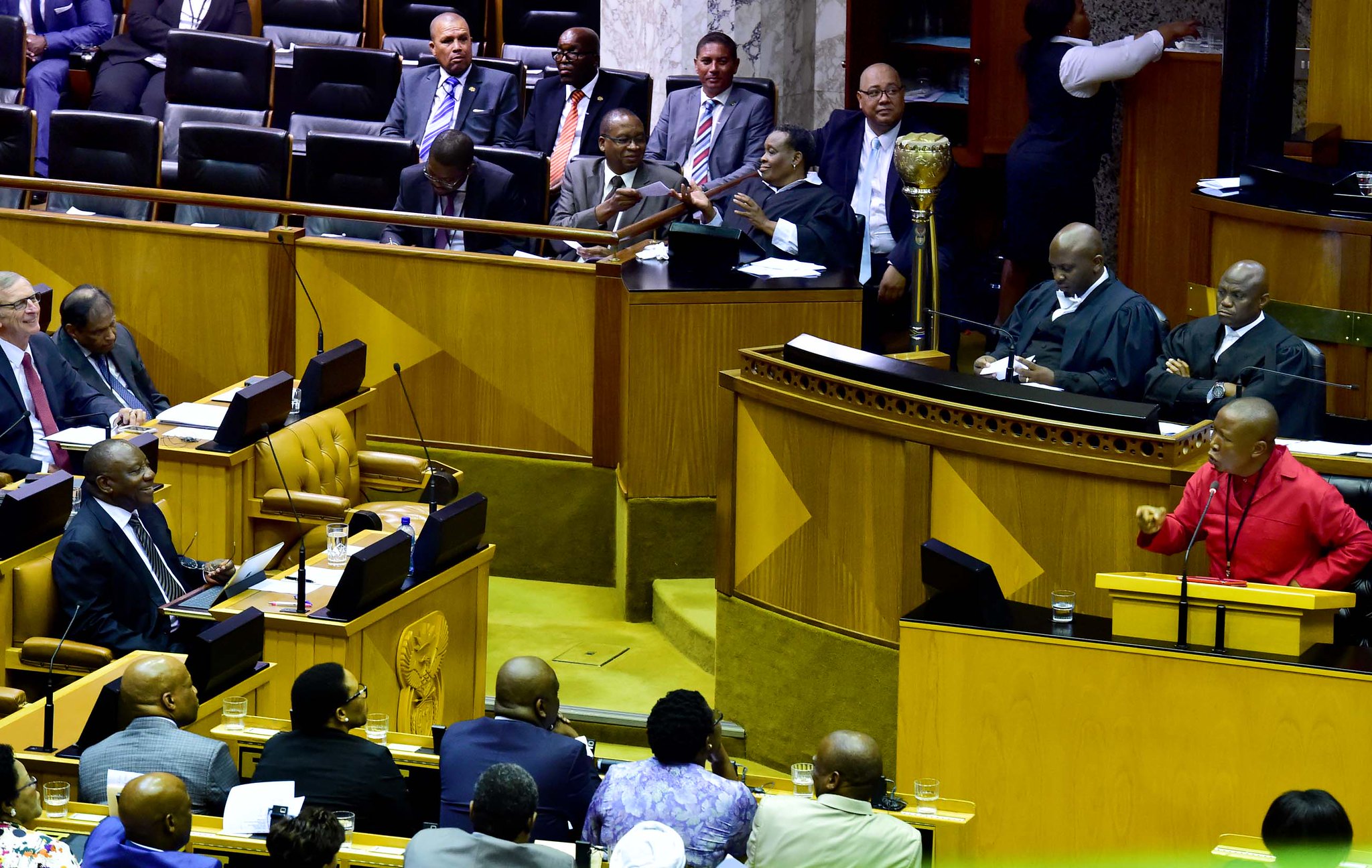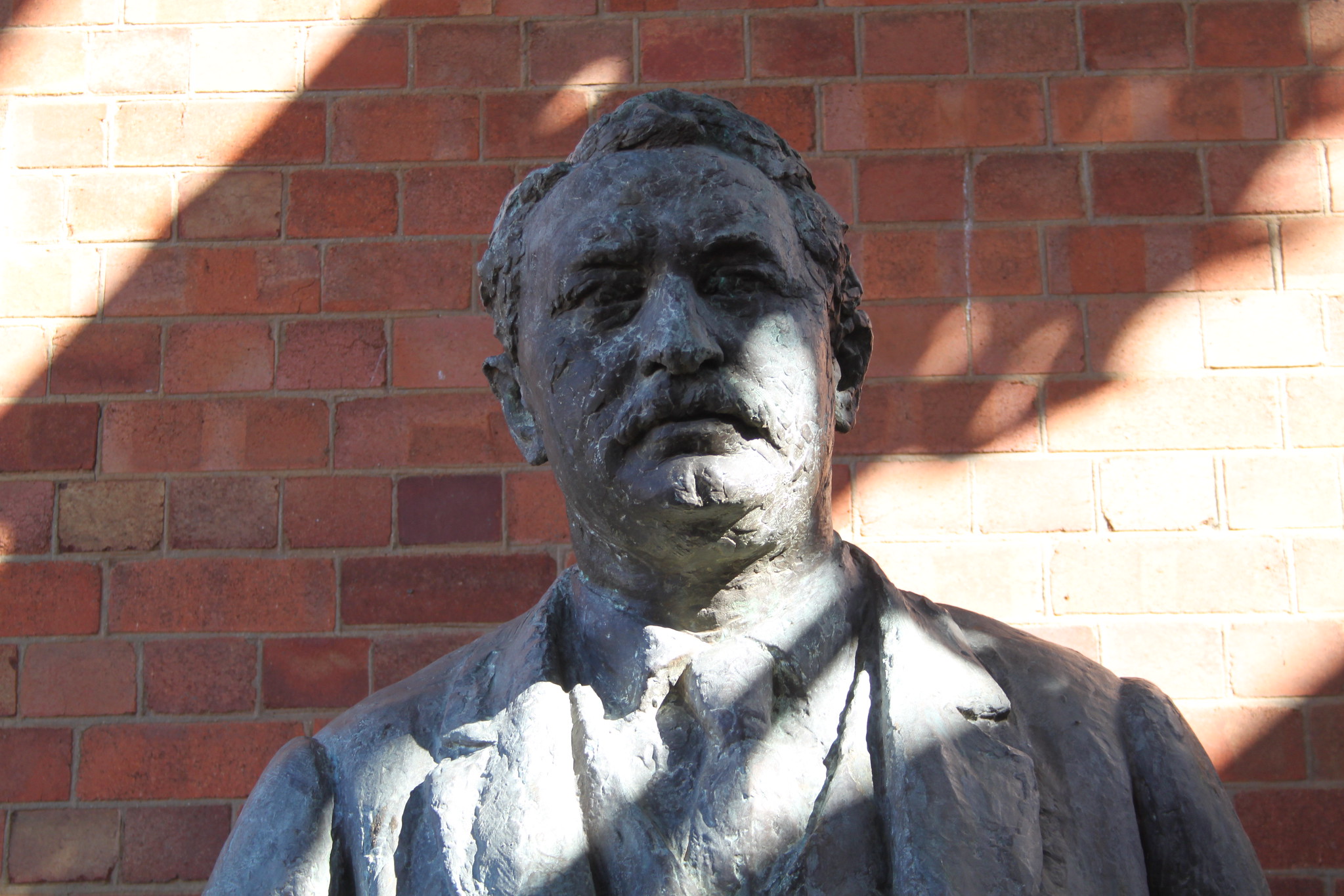South Africa’s history of apartheid gives it a unique perspective of and commitment to solidarity with those who are living under similar conditions. South Africa’s case at the International Court of Justice is an important moment for South Africa as well as Palestine, writes Mandla J Radebe.
When Vusi Madonsela, South Africa’s ambassador to the Netherlands, introduced Justice Minister Ronald Lamola and the legal team representing South Africa at the International Court of Justice (ICJ) in The Hague on 11 January, the nation held its collective breath in anticipation.
Since the government’s announcement on 29 December 2023, that it was approaching the ICJ under the Genocide Convention regarding “acts committed by Israel” in its ongoing conflict in Gaza, many in progressive circles have applauded this principled stance.
As survivors of apartheid, South Africans possess a unique perspective to identify when apartheid is unfolding. It instils a dedication to international solidarity to prevent others from enduring the hardships we faced.
The government’s case was grounded in profound apprehensions about the “plight of civilians caught in the present Israeli attacks on the Gaza Strip” due to the indiscriminate use of force and forcible removal of inhabitants. It argued that international crimes, including crimes against humanity and war crimes, were being committed. Furthermore, there were reports of acts that met the threshold of genocide or related crimes, as defined in the 1948 Convention on the Prevention and Punishment of Genocide, occurring in Gaza.
Granted, South Africa is a nation with diverse perspectives, including supporters of Israel. The SA Jewish Board of Deputies criticised the government for taking Israel to the ICJ, accusing it of failing “to play a role in talking to both sides”.
Similarly, the official opposition, the Democratic Alliance, opposed the government’s decision, arguing that South Africa was “taking sides” and had “scuppered the opportunity to play a neutral, mediatory role” in the conflict.
Cathartic moment
For many ordinary South Africans, who experienced apartheid first hand and continue to live with its physical and emotional scars, as well as its legacies of racialised inequality, the case was a cathartic moment.
Voices were given a platform to articulate the profound impact of apartheid oppression, akin to the ongoing situation in Palestine. The proceedings at the ICJ yielded a similar effect to Archbishop Desmond Tutu’s Truth and Reconciliation Commission (TRC) which was envisioned as a crucial space to confront the architects of oppression, including agents such as the ruthless Vlakplaas unit, a notorious apartheid hit squad. Vlakplaas, a farm west of Pretoria, served as the headquarters of the apartheid’s security branch, from where orders and many brutalities against freedom fighters were executed. For those who once suffered in silence, this wasn’t just about the Palestinians; it was about their own healing as well.
The TRC, designed to uncover the truth, empowered victims to recount their harrowing experiences, providing a long-awaited chance to confront those accountable for injustice. It became a symbolic arena where the silenced could reclaim their narratives and unveil the extent of their suffering. The scars of apartheid run deep and found acknowledgement in the TRC’s role in the healing process. Testimonies went beyond personal pain, evolving into testaments of resilience and the unwavering spirit of those who endured oppression.
The proceedings at the ICJ evoked these memories, providing a rare opportunity for the Palestinian version to be aired on an international stage. Their experiences of oppression and suffering were laid bare and exposed for the world to witness. This significant moment not only allowed for the expression of their plight but also served as a stark reminder of the ongoing struggle for justice and freedom.
It is imperative to recognise that the healing process is continuous. While the TRC was a stride towards reconciliation, it illuminated the intricate nature of forgiveness in the face of profound trauma. It sparked dialogues about justice, accountability, and the shared responsibility for a more equitable future.
While celebrating South Africa’s principled stance, we must acknowledge the strength and courage of those who spoke out, along with the challenges persisting in the pursuit of genuine justice. The ICJ case serves as a poignant reminder that the journey toward truth and reconciliation demands persistent commitment and vigilance, as we collectively endeavour to construct a nation liberated from the shadows of its painful past.
This necessitates a dedication to international solidarity to prevent others from enduring the hardships we faced. It is precisely this commitment that fuels our support for the struggle of the Palestinian people, drawing parallels between their suffering and our own experience with apartheid.
Unfolding apartheid in Palestine
As survivors of apartheid, South Africans possess a unique perspective to identify apartheid. One of the chief architects of apartheid, Hendrik Verwoerd, recognised parallels with Israel, describing it as an “apartheid state”.
Organisations like the Palestine Liberation Organisation (PLO) promptly recognised the parallels with apartheid. Israeli proposals for Palestinian autonomy bear resemblance to our own bantustans strategy, which allocated a meagre 13 per cent of (largely desolate) land to the indigenous African people while the white settler community appropriated the rest of the country for itself.
Comparison to South African laws and practices during the apartheid regime reveals a strong correlation with Israeli practices. Numerous aspects of Israeli life, including violations of international standards for due process (such as illegal detention), discriminatory privileges based on ascribed ethnicity (legally, as Jewish or non-Jewish), and repressive draconian laws, point to similarities between South Africa then and Israel now.
For those who lived under and experienced the brutalities of apartheid, scholarly arguments and academic research on apartheid are unnecessary. What Israel is practising in Palestine seems far worse than South African apartheid.
Israel’s brutality is ominous. Sadly, the international community has turned a blind eye to the desperate cries of the Palestinians. Western powers, such as the US and UK, are aiding Israel instead of leveraging their influence to facilitate a lasting, peaceful solution in the Middle East.
But were these not the same powers that sided with apartheid South Africa under the guise of anti-communism? They not only labelled freedom fighters like Nelson Mandela as terrorists but also designated the African National Congress (ANC), the current governing party, as a terrorist organisation.
To paraphrase Karl Marx, history seems to be repeating itself – first as tragedy and now as farce.
Photo credit: Alex DROP used with permission CC BY-NC-ND 2.0 DEED






Insightful, hurtful and hope inducing